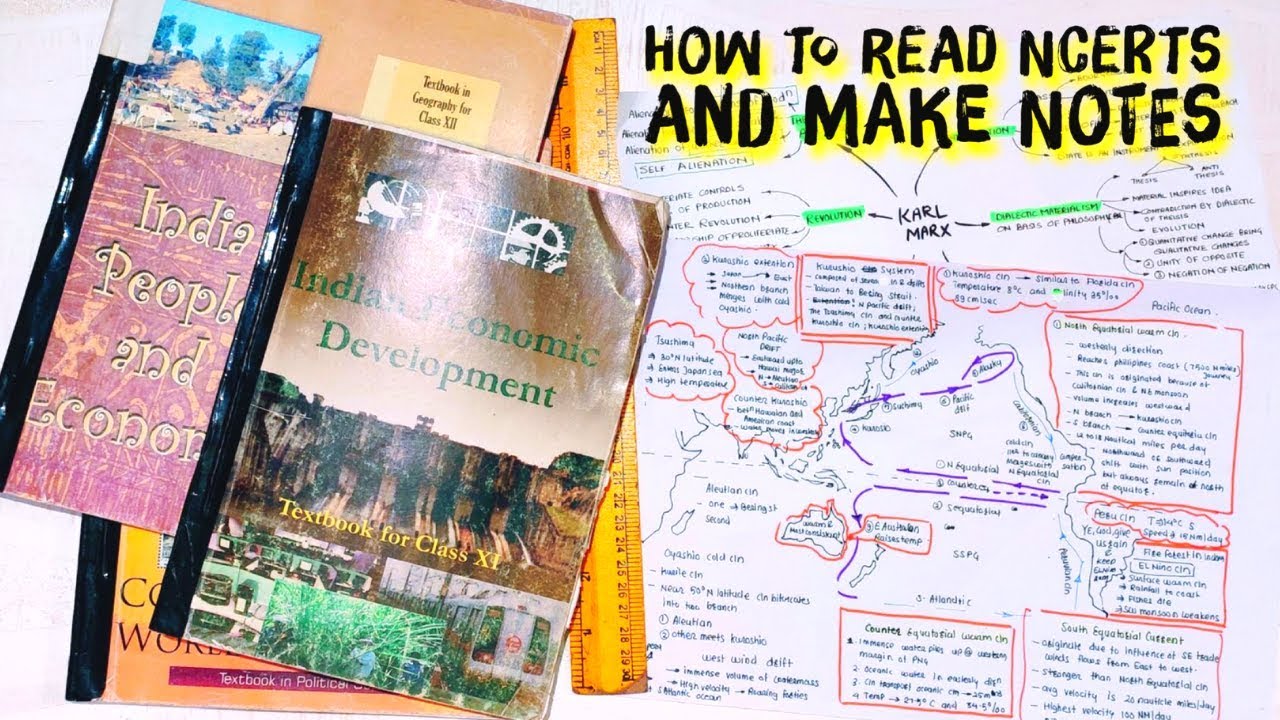Important NCERTs for UPSC CSE | NCERT Booklist for IAS Exam
Summary
TLDRThis video script offers a comprehensive guide for UPSC Civil Services exam preparation using NCERTs. It advises which NCERT books to study, emphasizing that not all are necessary due to repetition. The speaker, Abhijeet Yadav, recommends specific books for subjects like History, Geography, and Economics, and suggests focusing on understanding concepts and practicing exercises rather than making extensive notes. The script also provides a list of books sorted by class for easy reference.
Takeaways
- 📚 NCERT books are fundamental for civil services exam preparation, covering prelims and mains.
- 🌐 Geography NCERTs from 11th and 12th are recommended, with repetition across lower classes.
- 📈 For History, focus on 'Ancient India', 'Medieval India', and 'Modern India' by specific authors.
- 🏛️ Current History NCERTs include Class 9th, 10th, and 11th, focusing on world history context.
- 📊 Economics NCERTs provide a background on economic concepts and Indian economic development post-1947.
- 🏢 Polity NCERTs include 'Indian Constitutional Network', 'Political Theory', and 'Politics in India since Independence'.
- 🌍 Geography NCERTs for Class 12th are 'India People and Economy', 'Fundamentals of Human Geography', and 'India Physical Environment'.
- 🎨 Art and Culture NCERTs are 'Themes in Indian History' Parts 1-3 and 'An Introduction to Indian Art'.
- 🔬 Science NCERTs recommend focusing on specific chapters like Biotechnology and Ecology from the 9th and 10th Science books.
- 👥 Sociology NCERTs for Indian Society include 'Social Change and Development in India' and 'Indian Society' for GS1, and 'Introducing Sociology' and 'Understanding Society' for optional Sociology.
- 📈 The script advises against extensive note-taking while studying NCERTs and emphasizes understanding and practicing exercises at the end of chapters.
Q & A
What is the primary purpose of studying NCERTs for the UPSC Civil Services exam?
-The primary purpose of studying NCERTs for the UPSC Civil Services exam is to build a strong foundation in various subjects, which is useful for both prelims and mains preparation.
Why is it not necessary to study all NCERTs from 6th to 12th for the UPSC exam?
-It is not necessary to study all NCERTs from 6th to 12th because there is a lot of repetition in the content. Studying higher class NCERTs, particularly 11th and 12th, is sufficient for most topics.
What is the advice regarding making notes while studying NCERTs for UPSC preparation?
-It is advised not to worry about making detailed notes while studying NCERTs for the first time, as it can lead to rewriting the entire book. Instead, focus on understanding the concepts.
How can the exercises at the end of NCERT chapters be beneficial for UPSC aspirants?
-The exercises at the end of NCERT chapters, including MCQs and long answer questions, are similar in quality to mains questions. Practicing these exercises can significantly aid in UPSC preparation.
Which three NCERTs are recommended for History for UPSC preparation?
-The three NCERTs recommended for History are Ancient India by R.S. Sharma, History of Medieval India by Satish Chandra, and History of Modern India by Bipin Chandra.
What are the NCERTs suggested for current History in UPSC preparation?
-For current History, the suggested NCERTs are Class 9th's India and the Contemporary World Part 1, Class 10th's India and the Contemporary World Part 2, and an optional older book by Arjun Dev.
How does the NCERT on Economics help in UPSC preparation?
-The NCERT on Economics, particularly the ones for Class 10th and 11th, provide a good background on economic development, planning, and reforms in India, which is useful for both prelims and mains.
What are the key NCERTs for Polity in UPSC Civil Services exam preparation?
-The key NCERTs for Polity are Indian Constitutional Development for Class 11th, Political Theory for Class 11th, and Politics in India since Independence for Class 12th.
Why are the NCERTs on Geography considered comprehensive for UPSC preparation?
-The NCERTs on Geography, including India People and Economy, Fundamentals of Human Geography, Fundamentals of Physical Geography, and India's Physical Environment, are considered comprehensive as they cover a wide range of topics and can be sufficient with an atlas for the subject.
Which NCERTs are recommended for Art and Culture in UPSC preparation?
-For Art and Culture, the recommended NCERTs are Themes in Indian History Part 1, Part 2, and Part 3 for Class 12th, along with An Introduction to Indian Art for Class 11th.
How should a UPSC aspirant approach the NCERTs for Science?
-For Science, the recommended approach is to focus on specific chapters from the Class 9th and 10th Science Books and Unit 9 (Biotechnology) from the Class 12th Biology Book.
What are the key NCERTs for Sociology in UPSC preparation?
-The key NCERTs for Sociology are Introducing Sociology and Understanding Society for Class 11th, and Social Change and Development in India and Indian Society for Class 12th.
Outlines

هذا القسم متوفر فقط للمشتركين. يرجى الترقية للوصول إلى هذه الميزة.
قم بالترقية الآنMindmap

هذا القسم متوفر فقط للمشتركين. يرجى الترقية للوصول إلى هذه الميزة.
قم بالترقية الآنKeywords

هذا القسم متوفر فقط للمشتركين. يرجى الترقية للوصول إلى هذه الميزة.
قم بالترقية الآنHighlights

هذا القسم متوفر فقط للمشتركين. يرجى الترقية للوصول إلى هذه الميزة.
قم بالترقية الآنTranscripts

هذا القسم متوفر فقط للمشتركين. يرجى الترقية للوصول إلى هذه الميزة.
قم بالترقية الآنتصفح المزيد من مقاطع الفيديو ذات الصلة

Strategy for UPSC 2025 | 12 months Plan for UPSC CSE 2025 with Daily targets

Junaid Ahmed UPSC preparation for beginners Complete one year plan | IAS Junaid Ahmad

How to Read NCERT for IAS Preparation ☆ How to Make Notes ☆ INDIASHASTRA | UPSC

How to use UPSC Prelims Test series to maximise your score || Anonymous UPSC Aspirant

😱UPSC Prelims Shocking Factor --How to Approach 3 Column Question | UPSC PYQ Analysis #upsc2025 #ias

SELF STUDY routine STEP BY STEP | How to SOLVE SCANNERS, do Writing Practice and READ MODULES ✅
5.0 / 5 (0 votes)
